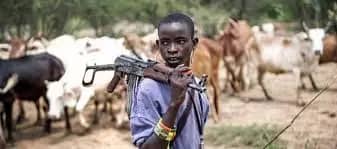Over the weekend, Nigeria was rocked by a series of brutal attacks perpetrated by herdsmen, bandits, and kidnappers across Benue, Kebbi, Imo, Ondo, and Kogi states, leaving at least 33 people dead and countless others injured or missing. These incidents, reported by Vanguard News on May 19, 2025, underscore the persistent insecurity plaguing the nation and highlight the urgent need for effective solutions to address the rising tide of violence. In this detailed blog post, we delve into the specifics of these tragic events, their broader implications, and the calls for reform that have emerged in their wake.
The Attacks: A Breakdown by State
Benue State: Ambush in Agatu Leaves 15 Dead
In Benue State, the epicenter of farmer-herder conflicts, a devastating attack unfolded in the Ogwumogbio and Okpo’okpolo areas of Agatu Local Government Area (LGA). On Saturday evening, armed herders ambushed traders returning from the Oweto market, killing at least 15 people in what Anthony Ikwulono, former Vice Chairman of Agatu LGA, described as an unprovoked assault. The victims, primarily traders, were gunned down without warning, and several others sustained injuries or were reported missing.
The Agatu region has long been a flashpoint for clashes between farmers and herders, driven by disputes over grazing land and water resources. However, the scale and brutality of this attack have sent shockwaves through the community, renewing fears of escalating violence. Local authorities have yet to provide a comprehensive response, and the lack of immediate security intervention has left residents feeling vulnerable.
Kebbi State: Bandits Kill 15 Farmers in Waje Village
In Kebbi State, the rural community of Waje village in Danko/Wasagu LGA was targeted by bandits on Saturday night. Armed with high-caliber firearms, the attackers descended on the village, shooting indiscriminately and killing 15 farmers. At least three others were injured in the assault, which appeared to target agricultural workers. The sheer audacity of the attack, carried out under the cover of darkness, highlights the growing boldness of bandit groups operating in Nigeria’s northwest.
Kebbi’s deputy governor, speaking on behalf of the state government, condemned the attack and extended condolences to the victims’ families. However, such statements offer little solace to communities living in constant fear of banditry, which has disrupted farming activities and displaced thousands in the region. The incident in Waje is part of a broader pattern of violence in Kebbi and neighboring states, where bandits exploit the lack of adequate security presence to carry out raids, abductions, and killings.
Imo State: Herdsmen Target Farmers in Ohaji/Egbema
In Imo State, located in Nigeria’s southeast, herdsmen launched attacks on communities such as Obokofia and Obosa Asaa in Ohaji/Egbema LGA. The assailants targeted farmers who had resisted the grazing of cattle on their farmlands, a recurring source of tension in the region. While the exact number of casualties in Imo was not specified in the report, the attacks contributed to the weekend’s grim death toll of 33.
Efforts to obtain comments from the state’s Police Public Relations Officer were unsuccessful, leaving residents and observers frustrated by the lack of official communication. The violence in Imo reflects the complex interplay of resource conflicts and ethnic tensions, as herders and farmers compete for land in an increasingly strained agricultural landscape. For the affected communities, the attacks are not just a loss of life but a threat to their livelihoods and cultural heritage.
Ondo State: Kidnapped APC Chairman Murdered Despite Ransom Payment
In Ondo State, the kidnapping and murder of Nelson Adepoyigi, the All Progressive Congress (APC) chairman in Ifon town, sent shockwaves through the political community. Adepoyigi was abducted by kidnappers who initially demanded a N30 million ransom. After negotiations, his family paid N5 million, only for the kidnappers to kill him, claiming the amount was insufficient. In a further act of cruelty, the kidnappers briefly detained two individuals who delivered the ransom before releasing them.
This tragic incident underscores the growing menace of kidnapping for ransom in Nigeria’s southwest, a region once considered relatively safe compared to the north. Adepoyigi’s death is not only a personal tragedy but also a stark reminder of the vulnerability of public figures and ordinary citizens alike. The failure to secure his release despite partial payment highlights the unpredictable and ruthless nature of kidnapping syndicates, which operate with apparent impunity.
Kogi State: Ongoing Insecurity and Unresolved Abductions
In Kogi State, the article references the kidnapping and killing of an individual named Obalohun, though specific details were sparse. Additionally, it mentions a prior incident in Odo-Ape, Kabba-Bunu LGA, where bandits abducted eight people in December of the previous year. While the exact contribution of Kogi to the weekend’s death toll was not clarified, the state’s inclusion in the report points to its ongoing struggles with banditry and kidnapping.
Kogi, located in Nigeria’s Middle Belt, serves as a gateway between the north and south, making it a strategic target for criminal groups. The lack of detailed information about the recent incidents in Kogi reflects a broader challenge in Nigeria’s security landscape: inconsistent reporting and limited transparency from authorities, which hinder efforts to fully grasp the scale of the crisis.
The Broader Context: A Nation Under Siege
The weekend’s attacks are not isolated events but part of a broader wave of insecurity that has gripped Nigeria for years. From the Boko Haram insurgency in the northeast to banditry in the northwest and farmer-herder clashes in the Middle Belt, the country faces multiple overlapping security challenges. The Vanguard News report notes that states like Plateau, Borno, Katsina, Nasarawa, Niger, and Sokoto have also been affected by similar incidents, painting a picture of a nation under siege.
Afenifere, a prominent Yoruba socio-political organization, has seized on these events to renew its call for the establishment of state police. Jare Ajayi, the group’s National Publicity Secretary, argued that decentralized policing would enable more effective responses to localized security threats. The current reliance on federal security forces, which are often overstretched and under-resourced, has proven inadequate in curbing the violence. Afenifere’s advocacy reflects a growing consensus among regional leaders that Nigeria’s centralized security architecture is ill-equipped to address the country’s diverse and dynamic threats.
The Human Toll: Beyond the Numbers
While the death toll of 33 is staggering, it only scratches the surface of the human cost of these attacks. Families have been shattered, livelihoods destroyed, and communities left in a state of perpetual fear. In Agatu, the loss of traders threatens the local economy, as markets are vital hubs of commerce. In Waje, the targeting of farmers jeopardizes food security, as rural communities are the backbone of Nigeria’s agricultural sector. In Ifon, the murder of a political leader has deepened distrust in the ability of authorities to protect citizens.
The psychological impact of these attacks cannot be overstated. Survivors and witnesses are left grappling with trauma, while entire communities live under the shadow of potential future attacks. The displacement caused by such violence further exacerbates Nigeria’s humanitarian crisis, with millions already living in internally displaced persons (IDP) camps across the country.
The Path Forward: Challenges and Solutions
Addressing Nigeria’s security crisis requires a multifaceted approach that tackles both the symptoms and root causes of violence. Immediate measures, such as deploying additional security forces to affected areas and improving intelligence-gathering, are critical to preventing further attacks. However, these must be complemented by long-term strategies, including:
-
Resolving Farmer-Herder Conflicts: The federal and state governments must invest in conflict resolution mechanisms, such as designated grazing reserves and mediation programs, to reduce tensions between farmers and herders. Climate change and population growth have intensified competition for land, making such interventions urgent.
-
Strengthening Local Security: The call for state police, as advocated by Afenifere, merits serious consideration. Localized security forces, accountable to state governments, could respond more swiftly and effectively to threats, provided they are well-trained and adequately funded.
-
Economic Development: Poverty and unemployment fuel banditry and other forms of criminality. Investments in education, job creation, and infrastructure in rural areas could provide alternatives to crime and reduce the appeal of armed groups.
-
Judicial Reform: The impunity enjoyed by perpetrators of violence must end. Strengthening the judiciary to ensure swift prosecution of bandits, kidnappers, and other criminals would serve as a deterrent and restore public confidence.
-
Community Engagement: Empowering communities through early warning systems, self-defense training, and collaboration with security agencies could enhance resilience against attacks.Join our Whatsapp channel to stay updated always!Click here to join our Whatsapp channel



65622v